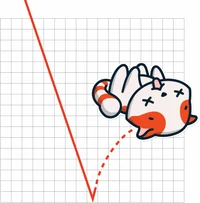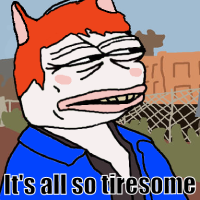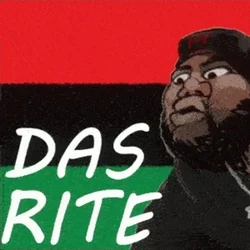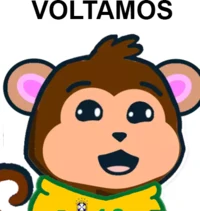Greetings Dramatards 

Today I'm very excited to talk about the never-ending deluge of drama and controversies which followed RSA's bid to host the 2010 Soccer world-cup, and its aftershocks which still have dire ramifications upon South Africa today.
Now by now, most of us having only taken a token glance at the proceedings of FIFA (a frog acronym for Fédération internationale de football association, French for International Association Football Federation) the head international governing body of soccer worldwide. FIFA controls much, if not everything significantly related to international soccer, and are famous for being one of the most, stunningly, STUNNINGLY corrupt organizations ever known in history. 
https://en.wikipedia.org/wiki/FIFA
The open secret of their perpetual bribery and backchannels to enable 3rd world nations a preferential treatment for being chosen by the 4-year repeated Host-nation ceremonies, as well as perpetually taking bribes from nations involved in Human-Rights abuses follow them in international headlines, like flies follow shit 


Back when brazil  was chosen to be the Host-nation for the 2014 world cup, a very large amount of strikes and protests would follow, especially after their government would undergo a massive budget expenditure for both the hosting process AND the massive reckless expenditure of the construction of the many new mega-staduims required to host the prestigious event of FIFA Host.
was chosen to be the Host-nation for the 2014 world cup, a very large amount of strikes and protests would follow, especially after their government would undergo a massive budget expenditure for both the hosting process AND the massive reckless expenditure of the construction of the many new mega-staduims required to host the prestigious event of FIFA Host.
So much so, that even backwards places like Sef-Efrica news would pick up upon it. SA of course was responsible for many of these protests indirectly. You see FIFA by the time the 2010 and 2014 Soccer World-Cups had arrived upon the public awareness of both of the nations of Brazil and South-Africa, had the dark reputation of enabling 3rd World and poor nations to host the fricking international soccer matches, even though the expenditures of these prestigious events was way way WAAAAYYYY out of the economic capacity of these places.
https://www.cnbc.com/2022/11/10/why-hosting-the-world-cup-can-be-a-bad-idea-for-some-countries.html
A common theme before the story even began at RSA in 2010, was nations' history of "overspending on infrastructure and stadiums, that has led to some hosts being in massive debt and left with constructions that serve little use after the FIFA World Cup comes to a close."
=====(from cnbc article)
Host countries rely on the economic impact derived from the tournament to generate revenue, and there are short-term and long-term economic impacts. A surge in tourism, hotel stays, job creation, and above-average spending at local restaurants and businesses are examples of short-term economic indicators.
But some host countries, which do not have the necessary infrastructure or stadiums to support the world's largest soccer tournament, incur huge debt loads and are left with so-called “white elephant” structures after the tournament ends.
Consider Brazil: The cost of the 2014 World Cup there ballooned as the country needed to construct new roads, transit lines, stadiums and hotels. Estimates suggest that $11.6 billion was spent on that tournament.
====(end quote)
For much of the history of FIFA, a lot of arguments had been made in the parliaments of the countries whom had ended up as the Host-nations, with many politicians arguing about the economic merits of being a World-Cup host versus the actual budget realities against which these governments ought to have taken into account, and usually the extreme prestige of soccer wins out against common sense (as well as the usual bribery and corruption).
https://www.aljazeera.com/sports/2022/11/17/do-host-countries-make-money-from-the-world-cup
=====(from aljazzeera article)
The football World Cup is the biggest sporting event in the global calendar … ahead even of the Olympics. From ticket and merchandise sales to corporate sponsorship, prize money and tourism, there are immense amounts of money kicking around an event like this.
But, for a host country, is it financially worth it? The short answer is no. Most countries hosting a World Cup spend tens of billions on preparations, developing infrastructure, building hotels and so on. Much of that is often not recouped, at least not in terms of hard cash.
======(end quote)
For the Brazillian protestors whom were having violent scuffles and fights with riot police during the opening week of FIFA in 2014, they protest the "high cost of the stadiums, corruption, police brutality and evictions. Similar demonstrations have been organised via social networks in 100 cities, including several that host World Cup games, such as Brasilia, Belo Horizonte, Fortaleza, Porto Alegre and Recife."
The protesters started in a festive mood, spraying pink glitter on passersby and dressing up as hula-hooping pixies and cupids to mark Brazilian Lovers' Day, which is also being celebrated today. But their messages were serious. "The World Cup steals money from healthcare, education and the poor. The homeless are being forced from the streets. This is not for Brazil, it's for the tourists," said Denize Adriana Ferreira.
Point being that there was large scale discontent about the Brazil 2014 Worldcup-hosting, and much of this discontent was intermingled with dissatisfaction with corruption within the government. And much of this fear of excessive spending, ESPECIALLY for the fricking stadiums! 

 Months of unrest and rioting would proceed the dated Soccer matches and opening weeks.And much of this was quite literally because of the massive warning example of South Africa's handling of the 2010 Cup-hosting, before during and after!
Months of unrest and rioting would proceed the dated Soccer matches and opening weeks.And much of this was quite literally because of the massive warning example of South Africa's handling of the 2010 Cup-hosting, before during and after!
The comically corrupt handling of the Hosting by the ANC-party, and the wasteful expenditure of building stadiums by South Africa, which would quite literally in some cases, be used ONCE and only ONCE for the fricking finale Soccer matches they would host, and fricking never again, put warning signs for many perceptive Brazilians looking across the Atlantic Ocean 
 and filled them with horrified alarm
and filled them with horrified alarm 





 at the similarity between their corrupt government's handling of the Cup, and that of South Africa's.
at the similarity between their corrupt government's handling of the Cup, and that of South Africa's.
https://money.cnn.com/2014/06/09/investing/world-cup-south-africa-brazil/index.html
=====(from cnn article)
As the soccer world descends on Brazil for the 2014 World Cup this week, disillusionment over the last tournament still lingers in South Africa.
The 2010 World Cup boosted tourism and national pride, but it's clear the economic benefits failed to live up to the hype and came at a very high price. Many now see Africa's first ever World Cup as a squandered opportunity.
There is ample research that suggests the impact of pricey sporting events tends to be brief and limited for host countries, with few exceptions such as the 2000 Summer Olympics in Sydney. The 2010 World Cup did little to disrupt that notion.
Pricey tourism lure: According to estimates, South Africa shelled out about $3.9 billion on the 2010 games, including $1.3 billion in stadium construction costs alone. 





 It's notoriously difficult to determine just how beneficial major sporting events are on local economies, but one key ingredient is the ability to attract rich tourists from other countries.
It's notoriously difficult to determine just how beneficial major sporting events are on local economies, but one key ingredient is the ability to attract rich tourists from other countries.
One research paper published in the Journal of African Economies calculates that South Africa attracted about 220,000 extra tourists from countries outside southern Africa during the 2010 World Cup and 300,000 over the entire year.
That's means the country spent a whopping $13,000 per visitor, the paper said. 


Some of the money spent on the 2010 World Cup went into infrastructure projects aimed at meeting demand for the games, increasing foreign investment and improving the lives of South Africans. That includes a state-of-the-art rail system, renovations to major airports and highway improvements. Mark Clark, a business professor at American University, said South Africa has not been able to attract as much business investment as it hoped.
The pride factor: Despite the difficulty of translating major events into sustainable economic growth, countries continue to vie for the right to host spectacles like the World Cup and Olympics. That may be partially due to less visible benefits like generating national pride and improving a country's standing in the world.
"I loved being there during the World Cup as South Africans came together and were proud. You could feel the excitement," said Mike Diamondis, who was born in South Africa and currently lives and works in Angola.
====(end quote)
Point being was that there were major warning signs for our friends in Brazil about the colossal costs associated with this monumental process of hosting the soccer World Cup, and that the bet of making all your construction money back via ticket slaves from the influx of rich tourists and soccer fans did not usually go out favorably. 




 For South Africa, it was in reality disastrous, as the ANC government had expected approximately between 500 000 to 1 million tourists to attend the event, an expectation which wasn't as unreasonable as you might think, because the Burgerland World Cup in 1994 had an astronomical 3,568,567 tourists for their event, which was however one of the most successful world cups ever in the history of soccer, as Burgerland was very wealthy and basically broke mostly even with their stadiums expenditure
For South Africa, it was in reality disastrous, as the ANC government had expected approximately between 500 000 to 1 million tourists to attend the event, an expectation which wasn't as unreasonable as you might think, because the Burgerland World Cup in 1994 had an astronomical 3,568,567 tourists for their event, which was however one of the most successful world cups ever in the history of soccer, as Burgerland was very wealthy and basically broke mostly even with their stadiums expenditure 

 and even used most of their soccer infrastructure afterwards, compared to most 3rd world poorcel nations hobbling themselves with debt just for the prestige.
and even used most of their soccer infrastructure afterwards, compared to most 3rd world poorcel nations hobbling themselves with debt just for the prestige.
For South Africa, it would only be later realized that a pathetic paltry 200 000 tourists and soccer fans attended the entire event!! You see as many as 3 million people in total would attend all of the dozens of Soccer matches during the 2010 World Cup, but the vast majority of these were local South African soccer fans, and some peeps from Southern African countries like Namibia and Botswana, which made the stats initially looked very very good, especially compared to places like Burgerland which held similar figures - but the grim reality we had a fraction of the usual tourists which other nation had before. The gov had banked on rich foreign tourists filling up our hotels and lodges, and using the World cup to do additional tourism in non-soccer related events to pump wealth into the SA economy. But the reality was thatt the mass of foreign tourists railed to realize in the hoped for numbers, leaving RSA with a massive deficit which the ANC themselves would not even fricking realize until later.
Even Ratface, our wingcucked friend John Oliver make a good segment, covering the grim reality that FIFA makes the lionshare of the ticketmoney for all of the seats sold in all of the matches of a Host-Nation, and that basically it's the reality that the Host nation must recuperate their construction costs via additional tourism just to break even, enlarging the danger of nation-states putting themselves into morbid debt just to build stadiums which will fricking host as little as only 4 matches!! Before likely being left into destitution post-Worldcup.
https://www.theguardian.com/world/2013/jun/09/world-cup-brazil-cost-mounts
"For the outside world, such debates may seen irrelevant. After all, it will be Brazilian taxpayers who bear the brunt of the costs, while Fifa rakes in the income from what looks likely to be the most lucrative World Cup ever in terms of sponsorship and broadcasting rights."
"Yet, there are problems. Serious ones, in fact. The Brazil team bus was stoned and blocked by protesters on May 27 when players were about to leave the hotel for their pre-tournament training camp near Sao Paulo. The $11.5 billion spending on the event, three times the amount spent by South Africa in 2010, in contrast with deplorable conditions in the health and education sectors, has converted the World Cup into an unfortunate white elephant for a sizeable section of Brazilian society to rile at."
"In Brazil, we have already seen the literate classes questioning the prudence of hosting an elaborate sporting extravaganza when basic infrastructure is lacking in most of its cities. Housing and water is still not available to common folk in some cities and high mortality rates remain an issue. Drug use is growing and crime is at an all-time high. Too add to this, the protesters have questioned the claim that close to $300 million will be raised from tourism during the World Cup and have objected to the government's assertion that the tournament will not add too much to the tax burden of the common Brazilian."
Anyways you guys get the idea, the danger of bankrupting a country when the fabulously corrupt FIFA officials come visiting your country, rises exponentially when your r-slurred 

 government has the insanity to agree with their demands and the Hosting.
government has the insanity to agree with their demands and the Hosting.
https://time.com/2930699/world-cup-brazil-spending/
====(from time article)
Brazil is throwing a party that, in the end, will cost it somewhere between $15 billion and $20 billion, according to a report in Sports Business Journal. FIFA keeps the revenue from TV rights, tickets, corporate sponsorships and marketing. Brazil gets to keep, in my estimate, around $500 million from tourist spending. That's not a very favorable equation.
South Africa spent around $6 billion for the 2010 World Cup. Germany (2006), France (1998) and the United States (1994), with developed infrastructure and modern stadiums, spent less than a billion each. When they co-hosted in 2002 and built new facilities, South Korea spent $2.5 billion and Japan $5 billion.
====(end quote)
And that was the crux of the matter for the major drama both for RSA in 2010, and and Brasilia in 2014. Compared to 1st world nations like South Korea and Burgerland, these delinquent due 


 vastly overspent compared to very wealthy nations, which already possessed strong and able infrastructure for the Hosting event, whilst SA and Macacosland built all of their shit from the ground up, because there had never been a need for such a scale of sleeping accommodations, roads, parking, food stalls and stadiums needed before in either country, and (this is the very important point), neither fricking nation would ever need this wasteful infrastructure again!!!! Or ever be even able to use the new stadiums to any regular amount to ever EVER justify their construction costs
vastly overspent compared to very wealthy nations, which already possessed strong and able infrastructure for the Hosting event, whilst SA and Macacosland built all of their shit from the ground up, because there had never been a need for such a scale of sleeping accommodations, roads, parking, food stalls and stadiums needed before in either country, and (this is the very important point), neither fricking nation would ever need this wasteful infrastructure again!!!! Or ever be even able to use the new stadiums to any regular amount to ever EVER justify their construction costs 






Brasilia and SA were truly mirrors or each other in this regard 





Many nations (or even cities) even opted out on allowing the Hosting of the Soccer World Cups, because the dark legacy of wastefulness of the FIFA event, the corruption of the FIFA organization itself, and the costs of the Hosting process, which was infamous long before the 2010 Soccer world cup would even arrive on the drama stage.
https://www.cbc.ca/news/canada/montreal/montreal-fifa-bid-2026-1.6091623
BACK TO SOUTH AFRICA 

 THE BRIBING OF FIFA PRE-2010:
THE BRIBING OF FIFA PRE-2010:
Before the shitshow of South Africa's ludicrous and obscene spending on the Worldcup even began, another series on controversies would envelop the news within the country, as to how the actual frick RSA actually managed to obtain its place within the FIFA lottery process to obtain a bid as Host-Nation.
Rumours were well known that Nelson Mandela (whom was still alive and in reasonable health at that time) had been instrumental in convincing the overlords of FIFA, to enable South Africa to be the 1st African nation in the world to host the Soccer WorldCup, and at the time it was a rumor of pride, that the nation's hero would expend his influence to allow South Africans to experience this grand and great pride!
But as the immensity of the corruption and exploitation of FIFA towards RSA became apparent after the 2010 World Cup, a lot of opinions soured as to this specific rumour, namely than the Great and Dignified Mandela Madiba himself would soil his integrity with the heads of the ANC in 2006-2010 to enable this vast corrupt enterprise and expose his own people to further economic hardship, as the costs of these grand stadiums would have to be carried by the already impoverished black taxpaying populations of SA 


https://www.bbc.com/news/world-africa-32934264
Was Mandela just a fool? An old man past his prime, easily manipulated by the likes of Jacob Zuma, to enable Mandela to speak on behalf of the ANC, to convince FIFA, to accept RSA's bribes over all the other countries, and that t would be good for optics, that FIFA allowed a poor but striving nation like RSA to finds its global place amongst all the world's nations as an equal?
=====(from bbc article)
A bitter taste has been left in the mouths of South Africans by the allegation by US prosecutors that bribes were paid to host the 2010 World Cup. Nelson Mandela was seen as instrumental in South Africa hosting the first tournament on African soil.
Many people I spoke to in Johannesburg believe it was his "Madiba magic" of the anti-apartheid hero that clinched the bid - and that South Africa proved itself by putting on a good show.
Sports Minister Fikile Mbalula was unequivocal in his denial about the alleged $10m (£6.5m) bribe mentioned in the US indictment. "We are not in any way involved as government in the transferring of illegal money for the purposes of the 2010 World Cup," he said. 










The indictment also mentions an earlier incident when a high-ranking South African bid committee official allegedly handed over "a briefcase containing bundles of US currency in $10,000 stack in a hotel room" in Paris to a co-conspirator of former Fifa Vice-President Jack Warner - who has denied all the allegations.
"It's really sad. But the reality is, this is Africa and it's the sort of thing we've come to expect," a businesswoman said. But an official from the South African Football Association insists the bid was run by "men of integrity", including Nelson Mandela.
Some South Africans tend to play the race card 

 (LMOA THIS IS ACTUALLY IN THE ARTICLE I DIDN'T EDIT THIS SETENCE) when criticised - believing they are being singled out simply because they are Africans. They feel that Afro-pessimism is at play even in this case.
(LMOA THIS IS ACTUALLY IN THE ARTICLE I DIDN'T EDIT THIS SETENCE) when criticised - believing they are being singled out simply because they are Africans. They feel that Afro-pessimism is at play even in this case.
But what they are reluctant to recognise is that this is a wide-ranging investigation about Fifa, and not about South Africa in particular. There are many other countries that are also implicated in this scandal.
=====(end quote from bbc article)
SAFRICA BRIBING FIFA PROOF COMES OUT:
=====(FRom qz article)
FIFA, the football's world governing body, has acknowledged that its own officials accepted up to $10 million in return for votes that awarded South Africa the 2010 World Cup tournament, Agence France-Presse reports. 



Allegations that South Africa bribed officials to win the bid to host the World Cup first surfaced last year, following a wide-ranging investigation of corruption at FIFA by the US Department of Justice. Its findings led to the indictment of Jack Warner, a former FIFA vice president and executive committee member, for selling his vote on the 2010 tournament, among other things. The scandal forced the resignation of Sepp Blatter, the organization's long-term president.
This is the first time that FIFA has backed up American investigators' version of events. South Africa has long denied such allegations. When the issue first erupted last May, the country's sports minister Fikile Mbalula dismissed accusations of corruption. “We ran a proper process,” he told the Los Angeles Times. “We're clear we've not done anything untoward.” 



=====(end quote)
South African peeps were royally pissed at this bribing story having been confirmed in 2016 by the USA department of Justice raping the corrupt FIFA officials with Burger justice-c*ck. In combination with the after-effects of the immense wasteful crap infrastructure built for the 2010 WorldCup only being slowly realized afterwards, and exposed by SA journ*lists, Safricans were clamourring for holding politicians responsible this monumentally grotesque waste of money responsible; especially as by 2016, the corruption of the Jacob Zuma mob, and State-Capture had become a common term used by SA households, and people began associating wasteful spending with the Zuma cabinet, all the while SA languished in perpetual poverty.
CAPE TOWN STADIUM CONTROVESY:
Because FIFA had harsh demands for Hosting the World Cups, the ANC would bend over backwards to fulfil their assinine demands. FIFA required SA to have multiple stadiums capable of hosting crowds of up to 50 000 people easily. The problem was that the foremost Cape Town stadium, at that time called the Green Point Stadium, was only capable of hosting 18 000 people - which was more than enough at the time, as Safricas seldom had larger needs, prior to the Worldcup.
https://en.wikipedia.org/wiki/Green_Point_Stadium
It was partly demolished in 2007 during construction of an adjacent new stadium, the Cape Town Stadium. Construction of the Cape Town Stadium began in March 2007. In 33 months, joint venture contractors ompleted the project at a cost of R4.4billion – or approximately US$600million. 


As you can imagine drama would follow the end of the 2010 Soccer World Cup, when inevitably the darn thing would receive way too few uses by the local sports teams in Cape Town, with its excessive capacity never being utilized fully to justify the cost of its existence, and worse the costs of its upkeep 


https://monocle.com/monocolumn/business/the-empty-stadiums-south-africa-s-white-elephants/
=====(from monocle article) (An extremely good article!)
21 October 2010
What should a city do with a football stadium no one uses, sitting on prime land in the centre of town? Demolish it, you say. 
The answer would be simpler were the question not over the future of the new but already iconic Cape Town stadium, completed only six months ago for the World Cup at a cost of R4.5bn (€460m).
The stadium, on Green Point Common, has been controversial since before it was even built. Many Capetonians believe it should have been built at Athlone, on the impoverished Cape Flats, where most of the city's football fans live. There, a club might have been found for it after the World Cup.
But the world football's governing body, Fifa, insisted on the city centre location, offering Cape Town a semi-final on the condition that it be played well out of sight of shacks and poverty. The government and local organising committee acquiesced. 



















Stade de France, who were due to take charge on 1 November for 30 years, have now backed out of the deal saying its shareholders are not prepared to support the “projected substantial losses” it will incur. Servicing the stadium and keeping the pitch in shape costs €45m a year. 



Capetonians are divided over whether the stadium is an 

 elegant icon or a useless monument to South Africa's excessive spending on the World Cup. Other stadiums – such as the 45,000-seater Mbombela stadium in Nelspruit, which cost R1.3bn (€134m), and the Peter Mokaba stadium in Polokwane (cost: R1.25m) were always expected to become white elephants. But Cape Town's stylish stadium was the most expensive of the 10 World Cup venues, leading everyone to believe that the number crunchers considered it sustainable.
elegant icon or a useless monument to South Africa's excessive spending on the World Cup. Other stadiums – such as the 45,000-seater Mbombela stadium in Nelspruit, which cost R1.3bn (€134m), and the Peter Mokaba stadium in Polokwane (cost: R1.25m) were always expected to become white elephants. But Cape Town's stylish stadium was the most expensive of the 10 World Cup venues, leading everyone to believe that the number crunchers considered it sustainable.
“Demolishing the stadium would be an act of vandalism,” says Mokena Makeka, a columnist for the Cape Times. “The stadium is an asset that has firmly positioned Cape Town in the pantheon of global cities,” he says.
Given that the city of Cape Town is under tremendous pressure to provide running 


 water and pottys
water and pottys  in poor areas, it cannot justify maintaining the stadium empty.
in poor areas, it cannot justify maintaining the stadium empty.
The only solution offered by planners is to convince Western Union Rugby  to move to the stadium from their legendary home at Newlands, a wealthy suburb. But WP Rugby are said to be reluctant to leave the ground they own in favour of leasing a stadium they consider unsuitable for rugby.
to move to the stadium from their legendary home at Newlands, a wealthy suburb. But WP Rugby are said to be reluctant to leave the ground they own in favour of leasing a stadium they consider unsuitable for rugby.
====(end quote)
CULTURAL CONTEXT:
Lol. Lmoa. Lololol. When the Capetonians and ANC became aware of just how fricking expensive 
 the upkeep would be, and when the Frog company which had originally tendered to be the Facility managers got cold feet after realizing just how few actual crowds the Cape Town Stadium would be able to attract post-2010 Cup, shit hit the fan. In their depravity to please their FIFA overlords, the ANC morons had agreed to build the stadium in the most visible part of the city, near the docks, and in the most famous viewing angle of Table Mountain, as the FIFA scum wanted the best areal views for advertising the stadium, and for their promotion.
the upkeep would be, and when the Frog company which had originally tendered to be the Facility managers got cold feet after realizing just how few actual crowds the Cape Town Stadium would be able to attract post-2010 Cup, shit hit the fan. In their depravity to please their FIFA overlords, the ANC morons had agreed to build the stadium in the most visible part of the city, near the docks, and in the most famous viewing angle of Table Mountain, as the FIFA scum wanted the best areal views for advertising the stadium, and for their promotion.
Additionally the problem of deliberately building the stadium away from the Cape Flats, and poorest regions of Cape Town which is filled with ultra poor blacks and coloured peeps, they had als built the stadium as far away as possible from the lionshare of soccer fans in the capital city. And more importantly, they had built the stadiums in a very very vehicle heavy and car-centric portion of the city, which was great for foreign tourists taxing from the airport, but made for an absolutely disastrous accessibility location for poor peeps.
If a Town Planner had made the decision for the placement of the Cape Town Stadium, he would have been fired and stripped of his degree, it is so bad to get there for people who don't posses a car. 
This is significant because of all cities in South Africa, Cape Town is unique in that it's the most pedestrian friendly city in the country, there are a great many multitude of foot-bridges to cross highways, many zebra-crossings are heavily enforced by actually competent traffic police. Busses have special lanes built for them in the heaviest highways to promote public transport. It also the only city which operates a still running public transport train (outside of the Gautrain in Gauteng).
Additionally the nature of Cape Town being the oldest city in the country, means that the street layout of the oldest sectors had been for foottraffic, before the age of the car, and is thus similar to Euro cities which are more pedestrian-orientated. The city however is not perfect, and regular car traffic still causes daily congestian, as the amount of cars in the capital have increased above what the roads had been deigned for 30 years ago.
Much of the poorest shanty town township dwellers have relied upon this pedestrian friendly system to go about their lives in Cape Town, the fact that the fricking Cape Town stadium was built as far as the poorest sectors of the city as possible (deliberately!) meant that fricking the most avid fanbase of the capital city was literally locked out of easy accesibilty to just physically get there!!! 

Taxi fares from Cape Flats to the darn stadium was also not especially cheap, resulting in poorcels having take tickets AND taxi fares into account.
This basically left the rich Upper Middle class whites to be the majority 


 car having peeps, to be the biggest theoretical base of peeps to come and watch soccer, right??
car having peeps, to be the biggest theoretical base of peeps to come and watch soccer, right??
But see here the biggest problem, in South Africa there was, and is, a massive racial divide between sport preference in South Africa. This racial divide is worth a whole other Longpost, but what is needed to be known for cultural context, is that for the majority of the past 100 years, the culturally dominant white Afrikaners had preferred cricket and especially Rugby as their primary pastime sport.
For Boeroids Rugby had been the everyman sport played by rich and poor white alike. And because Segregation had been the order for 53 years in south africa, black peeps were not aloud to participate in rugby tournaments with whites on national or even provincial matches. Curiously however, SA whites did not play soccer as much at all, and didn't care for Soccer as a prestige sport at all, which naturally meant that black peeps would migrate to Soccer as their prime everyman sport. The Afrikaner government cared little for the prestige of soccer which i don't know why 


But regardless thee NP regime even actively encouraged separated black only Soccer events, to actively culturally enforce Apartheid unto all races in the country, and was only too happy enable the natural development of black peeps having provincial soccer matches, thus fascillitating not just segregation in sports, but actual segregation OF SPORTS - so that Rugby gradually became to be identified as a white sport, and soccer as a black sport.
When in 1994 the democratization of RSA meant that any race could play in any sport, there gradually would over the decades become black peeps interested in Rugby, and whites into soccer - but the stark divide still persist to this day, and persisted until 2010.
When the ANC and Cape Town gov attempted to persuade the Western Union Rugby, to trade places with the Newlands Rugby stadium, the rugby Union basically laughed in their face, as they had no need for such a fricking colossal asset, and had no desire to be left holding the bag 




 for the Upkeep costs associated with the Cape Town Stadium
for the Upkeep costs associated with the Cape Town Stadium
But much much more significantly, was that the majority car-having white Upper Class Capetonians, had very little interest in utilizing the Cape Town Stadium post-2010 to view soccer, as whites in general have very lukewarm appreciation for soccer in SA, with Rudby and Cricket being the much more dominant sports. Many Bong south africans have culturally a much more soccer orientated view, and enjoy Football 
 than their inland boer counterparts, but even they despise South African soccer, because our national soccer team
than their inland boer counterparts, but even they despise South African soccer, because our national soccer team 

 is soul-crushingly pathetic.
is soul-crushingly pathetic.
https://en.wikipedia.org/wiki/South_Africa_national_soccer_team
The South African national soccer team is called  Bafana Bafana - and they are so so inept and shit
Bafana Bafana - and they are so so inept and shit  Bafana as an organization is immensely corrupt and nepotistic, painfully made aware when compared to the fabolous achievements by the SA cricket team (the Proteas, named after the national flower), and compared to the stunningly capable SA Rugby team (the Springboks, named after the national antelope) :masrseyza:
Bafana as an organization is immensely corrupt and nepotistic, painfully made aware when compared to the fabolous achievements by the SA cricket team (the Proteas, named after the national flower), and compared to the stunningly capable SA Rugby team (the Springboks, named after the national antelope) :masrseyza:
It will be surprising for foreigners to learn that coloureds are massive massive soccer fans and enjoyers, but despise the ineptitude and nepostism and anti-coloured bias the South African Bafana Bafana team has, and subsequently are ardent Bong Football enjoyers! 



 Much of my coloured friends i had during my studied in UCT was spent being lectured by my coloured peers, both wealthy and poor, about the various famous Bongland soccer teams like Liverpool and Manchester United, and all these small english provinces, because RSA coloured followed english Super-matches even more religiously than they did our fricking local RSA teams, like the Kaizer chief or whatever.
Much of my coloured friends i had during my studied in UCT was spent being lectured by my coloured peers, both wealthy and poor, about the various famous Bongland soccer teams like Liverpool and Manchester United, and all these small english provinces, because RSA coloured followed english Super-matches even more religiously than they did our fricking local RSA teams, like the Kaizer chief or whatever.
https://yougov.co.uk/ratings/sport/fame/football-clubs/all
The reason being that Bong Football is just on another professional level than the crappy butt-backwards 3rd world tier which Bafana Bafana inhabits. And many ardent soccer fans in RSA, like Bong whites and coloureds prefer to watch football at the highest level of play if they do like soccer as a sport.
Thus disasterously, the fricking Cape Town Stadium is left with an ever decreasing pool of theoretical crowds which could fill its seats, as neither Upper Class whites, or Middle Class coloureds car-havers, have any interest in the mostly black dominated soccer in the local levels of SA. And guess who's the poorest demographic in Cape Town 

https://www.politicsweb.co.za/opinion/why-cape-town-stadium-should-be-demolished
That being said, it's not absolute doom and gloom, and I should not overstate the uselessness of the Cape Town Stadium, as it has been used for Curry Cups in Rugby, and a multitude of soccer matches and finals through the decades since. And the increased seatings means also that many events have been held their since, so I do believe it may pay itself back slowly over time.
The same cannot be said for the other fricking 9 stadiums languishing in much less populated parts of South Africa 




THE FATE OF THE REST OF SA STADIUMS: 


====(from news24 article)
While eThekwini's Moses Mabhida Stadium in Durban has registered a loss of more than R200 million, it is not the only stadium specifically built for the 2010 FIFA World Cup that is in the red.
Five stadiums - Moses Mabhida Stadium, the DHL Stadium in Cape Town, Mbombela Stadium, Nelson Mandela Bay Stadium and Peter Mokaba Stadium in Polokwane - were all built from scratch to accommodate soccer fans during the World Cup.
But 13 years after the international teams left our shores, losses are running into the millions.
======
However, the stadium only generated "a portion of the running costs" in revenue each year, said City of Cape Town spokesperson Luthando Tyhalibongo.
The operating costs for the stadium in the 2022/23 financial year were R95.9 million. In the same year, the stadium generated R50.7 million in revenue. 


He added the biggest costs in running the stadium were maintenance costs, as well as the costs of powering the stadium, especially in the face of ongoing load shedding. 





"With WP Rugby now the anchor tenant and approximately 15 televised rugby events per year, Cape Town City and Cape Town Spurs both playing matches at the stadium brings a further 20 televised PSL matches a year," said Tyhalibongo.
He added the City was looking at diversifying revenue streams at the stadium as well as developing property in the stadium precinct. "A stadium lifespan is between 150 and 250 years. The DHL Stadium is 13 years old and at a very young stage of its lifespan…
"There is no doubt the value generated both in economic and global exposure will far outweigh the initial investment. The city positions itself as an events capital in Africa and the world, and the DHL Stadium plays a large part in enabling this strategy."
=====(end quote)
The running theme is the same for the other 9 stadiums in SA built for the 2010 World Cup, in that basically all of the stadiums are just too fricking big 

 they were built with the short term view of housing the stipulated 30 000 to 50 000 spectators by the FIFA goons, and not for the needs and requirements of their local populations which had little to no need for such excessive and grandiose infrastructure. The constant theme is that not enough spectators fill seats for each of these oversized stadiums, and that they are all running at a loss.
they were built with the short term view of housing the stipulated 30 000 to 50 000 spectators by the FIFA goons, and not for the needs and requirements of their local populations which had little to no need for such excessive and grandiose infrastructure. The constant theme is that not enough spectators fill seats for each of these oversized stadiums, and that they are all running at a loss.
The ANC had projected that although the stadiums were expensive to build, that they would generate revenue from the World Cup, and subsequent 15-20 years of events, to redeem  their building costs, and pay for themselves over time. HOWEVER, in their typical and spectacular r-sluration, our glorious ANC leaders literally did not take maintenance into account. They literally didn't fricking future plan for the upkeep of these monumental stadiums, and has presumed that ticket sales would be a perpetual net income.
their building costs, and pay for themselves over time. HOWEVER, in their typical and spectacular r-sluration, our glorious ANC leaders literally did not take maintenance into account. They literally didn't fricking future plan for the upkeep of these monumental stadiums, and has presumed that ticket sales would be a perpetual net income. 



Thus to compound our national woes, the fricking upkeep expenses and maintenance like cleaning and cutting the grass, and water and electricity, was never taken into account or foreseen, and the planned annual income which fricking gov counted on to offset the constuction-costs, have instead turned into annual losses for the nation !!!!!! 


https://www.csmonitor.com/World/Africa/2010/0615/World-Cup-stadiums-What-s-with-all-the-empty-seats
=====(from article)
World Cup stadiums have had gaping holes where people should be. South Africans fret that it's a sign that the Cup will not bring the prosperity that they had been promised by FIFA and politicians.
Forget, for a moment, the dulcet tones of that popular (and yet curiously plastic) trumpet that South Africans call the vuvuzela. Look at the stands. Where are all the fans?
“As South Africa, we got the stadiums built, and all FIFA had to do was sell the tickets,” Mr. Vegter adds. “They seem to have made a peepee-up of it.”
=====(end)
https://www.si.com/soccer/2015/02/02/world-cup-stadiums-brazil-south-africa-fifa-white-elephants
=====(from si article)
A mere four years after the competition, most of South Africa's World Cup venues stand largely empty, used only for poorly attended local soccer games and the occasional concert. It is a long way from being enough to justify the huge construction and running costs of the stadiums. One of those is the $600 million Cape Town Stadium, which, according to a story in the Toronto Globe and Mail last year, is losing an estimated $6 million-$10 million annually.
“During the current (2012) season Ajax Cape Town has played 10 games in the Premier Soccer League (PSL) with a total attendance number of 40,000, giving an average of 4,000 in a stadium with a capacity of 55,000,” 



 says the World Stadium Index, noting that “both of the local rugby teams, Western Province and The Stormers continue to play their games at Newlands Stadium (Cape Town's historic rugby stadium).” While Ajax's average crowds improved to 8,000 last year, it is still hardly enough to make the use of such a vast stadium worthwhile.
says the World Stadium Index, noting that “both of the local rugby teams, Western Province and The Stormers continue to play their games at Newlands Stadium (Cape Town's historic rugby stadium).” While Ajax's average crowds improved to 8,000 last year, it is still hardly enough to make the use of such a vast stadium worthwhile.
And the story has been repeated across South Africa. Other than the country's two biggest teams, the Kaizer Chiefs and the Orlando Pirates, the PSL draws poor crowds, with average attendance varying between 2,000 and 10,000 – nowhere near enough to justify the costs of playing in expensive FIFA-standard stadiums. It is a situation that is now being reflected in Brazil. In addition to running costs, the expense of staging a game at the Arena Pantanal has been estimated at around $40,000, a sum clearly unviable when considering the crowds small local teams might hope to attract.
One of the ongoing debates that surround the hosting of events such as the World Cup or the Olympics, and the costly 

 white elephants they almost inevitably leave behind, is who is responsible for the size and scale of the tournaments and the stadiums required to hold them? FIFA, with its grandiose demands that can often seem preposterously self-indulgent, particularly given the harsh reality of life for many in countries such as Brazil and South Africa, or local government, for pandering to the whimsies of Sepp Blatter and Co.?
white elephants they almost inevitably leave behind, is who is responsible for the size and scale of the tournaments and the stadiums required to hold them? FIFA, with its grandiose demands that can often seem preposterously self-indulgent, particularly given the harsh reality of life for many in countries such as Brazil and South Africa, or local government, for pandering to the whimsies of Sepp Blatter and Co.? 


FINAL-POLOKWANE STADIUM:
I worked for 2.5 years after graduating as a Land Surveyor in Polokwane in the province of Limpopo
And I even surveyed near the roads of the Peter Mokaba Stadium, the stadium built for the 2010 Soccer World Cup for the Limpopo province. I enjoyed my time there, the Pedis are nice people and friendly, and i enjoyed my time working there, although the massive mountains 

 and many thorntrees made surveying hard. I was very incompetent at that time, and have much improved as a surveyor, I wish I could go back give a better service for my boss, i have many regrets.
and many thorntrees made surveying hard. I was very incompetent at that time, and have much improved as a surveyor, I wish I could go back give a better service for my boss, i have many regrets.
In Polokwane there is still many decorations left all the way back from 2010, untouched in 13 years. It's like a scarring of a city having suffered a warlike artillery barrage, but instead with constant useless crap built for a one time event, which visually enforces the monetary waste.
"Although figures of the finances of the new Peter Mokaba Stadium for the current financial year which ends on 30 June are not available as yet, a report that was tabled in the Polokwane Municipal Council recently, showed that the municipality has suffered losses to the estimated amount of R30 million during the last four financial years and that some cost cutting measures have to be implemented as a matter of urgency."
And like the rest of the other 9 stadiums built in SA, the Peter Mokaba Stadium was just too big and grand and costly to upkeep successfully, being another burden on the struggling already poor municipalities 


https://mg.co.za/article/2011-06-10-stadiums-score-costly-own-goals/
Also Google is fricking racist 

 and sometimes completely useless!!!1
and sometimes completely useless!!!1 

 The stupid Google Maps sometimes can't find african names and i have to force the stupid machine manually to local towns. For capitals like Polokwane it's easy, cuz i know the general shape of RSA and each province intimately and where each capital is relative to each geographic feature and border, but small tiny towns can sometimes be long search lmoa
The stupid Google Maps sometimes can't find african names and i have to force the stupid machine manually to local towns. For capitals like Polokwane it's easy, cuz i know the general shape of RSA and each province intimately and where each capital is relative to each geographic feature and border, but small tiny towns can sometimes be long search lmoa 
In Polokwane, at the entrance of the Southern Highway, you can still see there soccerball lamppost things which decorate all of the main streets into Polokwane. They were part of massive decorations which covered the city all for just 4 matches which were played within the new mega-stadium. They still stand untouched 13 years later, all over the city, serving no purpose, just existing from a time before, remarkably many stand unmolested or looted, as they contain no copper or useful materials to loot, they are mainly plastic. 

 for me they represent the unmeasurable wealth squandered, not just for the 2010 Soccer World Cup, but also for the ANC government having let so much potential wasted for an event which gave no value to the people of RSA other than temporary pride.
for me they represent the unmeasurable wealth squandered, not just for the 2010 Soccer World Cup, but also for the ANC government having let so much potential wasted for an event which gave no value to the people of RSA other than temporary pride.
WORLD CUP OPENING-CEREMONY DRAMA: 




Shakira's famous Waka Waka song was a huge hit in RSA, and was played over the radios constantly. She was subsequently hired to come and perform during the Opening and Closing Ceremonies for the 2010 World Cup. Many cucks and moral busybodies sneeded and bitched that the RSA ceremony wasn't African enough because it featured several white foreign artists like Shakira, instead of being mostly black singers and performers. This was directed from both Safrican black peeps, and pan-african yanks, and African continentals 




=====(from article)
The World Cup festivities are set to kick off Thursday at 1800 GMT with an opening ceremony featuring pop star Shakira and the Black Eyed Peas (pictured). The event, however, has drawn criticism for not being "African enough". 


Set to be broadcast live around the world from 8pm Paris-time, the World Cup opening ceremony promises to be spectacular. Headlining the event at Orlando Stadium in Soweto is Colombian pop star Shakira and her controversial song called “Waka Waka” (meaning “This Time for Africa”), the competition's official anthem, which was allegedly lifted directly from a well-known piece of music from Cameroon. The event will also feature the Black Eyed Peas, Alicia Keys and John Legend.
However, a smattering of African dance steps incorporated into her routine and a South African pop group – Freshlyground - slated to accompany her are apparently not enough to help the South American singer fend off critics. Dissatisfied by the concert's line-up, a union of South African artists are calling for a boycott of the event. They argue that the event is “not African enough.” 








The event's ‘Africaness' is not the only thing ruffling feathers. Ticket prices, which are priced between 450 and 1,400 rands (47 to 145 euros) is another source of frustration. “This amount is more than the weekly salary of many workers in this country. It's an elitist event that is not geared toward the entire population”, protested Lebogo. Despite the high prices, however, the concert is already sold-out.
In the face of such fierce criticism, FIFA has finally decided to organise a second event. In addition to Thursday night's performance, there will be another show Friday preceding the Cup's opening match. The programme will be a “surprise”, but it is widely anticipated to be an event dominated by South African artists. So far, only one honoured guest has been confirmed: former South African President Nelson Mandela, who is scheduled to make a 15 minute appearance. “Madiba”, as Mandela is often called in South Africa, will however then return directly home, where he will follow the rest of the night's events on the television. 


======(end quote)
Lmoa FIFA literally had to hold a second ceremony concert event to placate the South African sneedfest  where black SA artists were
where black SA artists were 

 about not having exlcusively black african performers in the coveted 1st Soccer World Cup hosted by the African continent.
about not having exlcusively black african performers in the coveted 1st Soccer World Cup hosted by the African continent.
Anyways that's all I got, Good Day!! 






























Jump in the discussion.
No email address required.
Waka Waka was a catchy song but I preferred Wavin' Flag.
Jump in the discussion.
No email address required.
I thought u would
u would  like this one cuz it involved
like this one cuz it involved  brazil
brazil  a bit
a bit 
Jump in the discussion.
No email address required.
It's 11a.m. and I'm at work right now, so I'll read your longpost at night
Jump in the discussion.
No email address required.
Jump in the discussion.
No email address required.
More options
Context
More options
Context
More options
Context
More options
Context